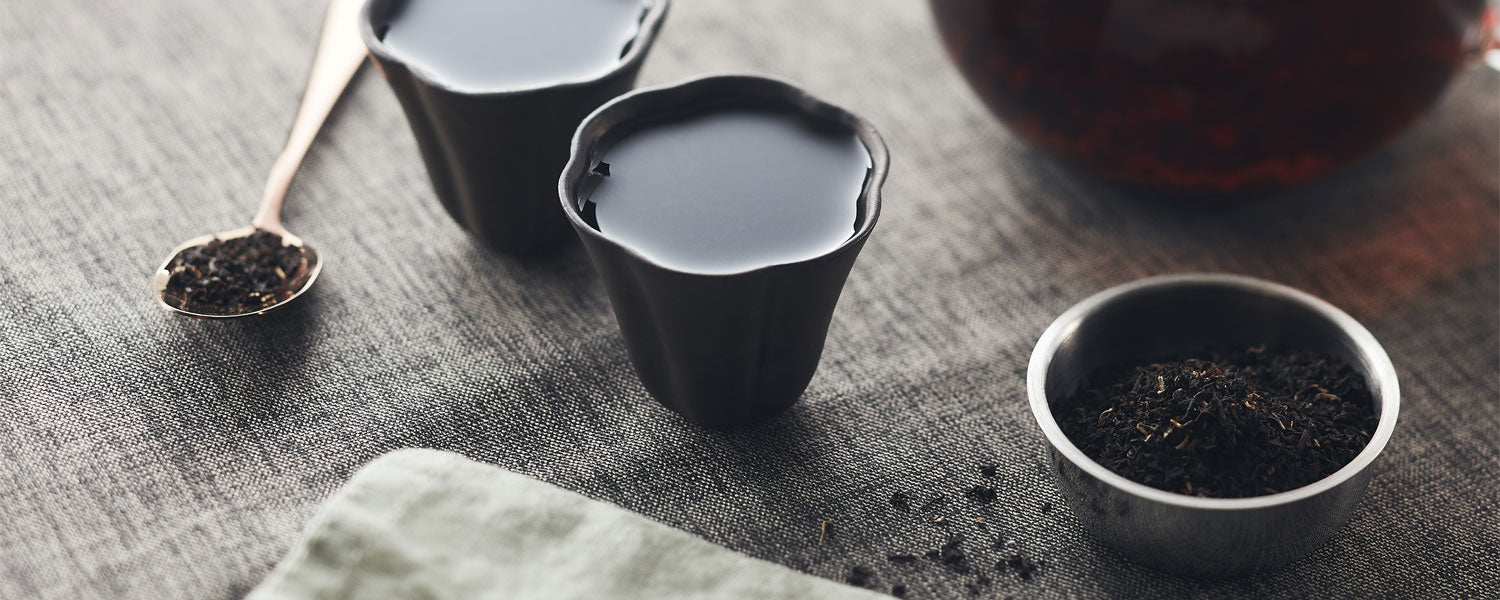What is Assam tea?
Assam is a bold black tea, named after the area in India where it is grown. Arguably one of the most famous teas in the world, Assam is relished for its rich biscuity tones and malty character. You'll find Assam in most good quality English Breakfast and Chai tea blends, but it is equally popular as a single-origin tea. Assam is thought of as a strong and highly-caffeinated cuppa and therefore commonly enjoyed in the mornings, but it's worth noting that caffeine levels can vary between expressions.
Where does Assam tea come from?
Lying in the far northeast of India, the state of Assam is virtually cut off from the rest of the country by northwestern Bangladesh. This special region is where the large leaf Camellia Sinensis var. assamica tea plant originated. To this day Assam remains one of the most successful tea-growing locations in the world. The landscape benefits from a lush tropical valley, formed by the Brahmaputra river which flows from its source in the Tibetan plateau of the Himalaya mountains through China, India and Bangladesh. This fertile, protective landscape marries with regular rainfall and humidity to create the perfect greenhouse-like conditions for tea bushes to thrive year-on-year. As such, Assam is home to thousands of tea gardens, each producing Assam teas that vary slightly in flavour. There are four Assam picking seasons – referred to as 'flushes' – between March and December. Each harvest offers teas with distinctly different characters, although it is the second flush that is considered the most desirable in terms of quality and prestige. These leaves are picked in the late spring and boast a perfect balance of fresh flavour, balance and malty richness.
What makes Assam tea special?
The Assam valley is perfect for producing quality teas. Its river-fed plains provide rich and fertile soils, while the mighty Himalayas protects it from north winds and helps retain the hot, humid monsoon air that the tea bushes thrive in. Assam tea itself is produced from the 'large leaf' variety of the Camellia sinensis tea bush (as opposed to the 'small leaf' variety more common in China). The tea leaves are handpicked, with just the precious top-two-leaves-and-a-bud being carefully plucked with each pass. Processing varies between tea gardens, but generally all Assam teas are withered, rolled and fully oxidised after picking. More details of the process can be found in our blog post The Different Classes Of Tea. During their lengthy processing the leaves turn from lush green to dark brown in colour, bringing out their bold, full-bodied flavour. The leaves are then rolled, before the all-important drying and fixing stage, where the flavours and aromas are locked in until the tea is steeped with hot water in a cup, mug or pot. Good quality Assam teas brew into bright, glistening copper-coloured liquors with gorgeous aromas of freshly baked biscuits and dark malt.

Golden River, Assam
If you would like to try an extra special Assam, our Golden River blend is a prime example, grown and processed by the quality-focused Bukhail estate. This tea is graded a Golden Flowery Broken Orange Pekoe – a desirable classification of loose leaf black teas, which highlights the presence of larger leaf pieces, whole golden tips, and smaller broken leaf pieces to help release flavours faster. If you'd like to learn more about tea grading, see our Ultimate Guide to Loose Leaf Tea blog post here.
How to enjoy Assam tea
Unlike some lighter teas, the robust nature of Assam means it should always be steeped with boiling water - whether it's loose leaf or in a teabag. While green teas, oolongs and even black teas from Darjeeling and Sri Lanka are suited to drinking as-they-come, Assam is best served strong with a splash of milk. This makes for a soothing, comforting brew that enlivens the senses. For tea-drinkers with a sweeter tooth, a teaspoon of sugar transforms Assam into an extra-satisfying sip, bringing out its inherent biscuit and prune notes. Our Tea Masters recommend brewing two teaspoons of loose leaf Assam tea for 3-5 minutes, depending on how strong you like your tea. As with all types of tea, the quality of the water you brew with affects the flavour of your final infusion. While we always recommend using freshly drawn water, we'd also urge you to use a water filter (reverse osmosis or two-stage carbon/ceramic are best) to partially purify and soften your water before boiling. This will give the purest brew and express the tea at its finest.


